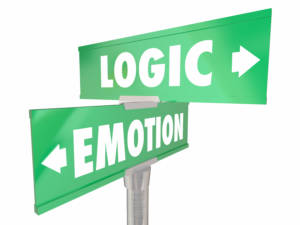
How do you manage your feelings? Everybody wants to feel good. Nothing wrong with that except, nobody knows for sure how to deal with their feelings, let alone how to make a particular feeling like happiness or joy occur on demand.
It is especially difficult to not let feelings mount and take over under COVID pandemic conditions. Fear, worry, pent-up frustrations threaten to run our lives, cloud our judgment and rule the day. You don’t have to be a victim of your own emotions.
But, How Do You Manage Your Feelings So They Are Welcomed and Not Feared?
There is a spectrum of ways people relate to their feelings. On one end of the continuum feelings are ignored and suppressed, not recognized, or discussed. On the other end, some people only think about feelings and process everything in life according to how their feel. The range is from ignoring feelings to overly focused on feeling.
Our culture sends us mixed messages about management of emotion, how to express emotion and what feelings are good for in general. Yes, everybody wants to feel good, but feeling feelings, expressing feelings, and sharing them with other people is not well thought of in our society. Consequently, those skills and concepts about how to have a balanced perspective on emotion is misguided.
Women, one of the longest running documented minorities in our culture, are one of the exceptions when it comes to the expression of feelings. Most men, particularly those with white faces think of expressing emotion (other than anger) as weak, girly, or something else derogatory.
Biologically, men and women are the same when it comes to having feelings. Unfortunately, the two sexes have been gendered very differently in this regard. As a result, women are usually very adept navigating emotional landscapes and men are not. This is one of the biggest sources of marital trouble in our culture.
Anyone who is brave enough to be in touch with their feelings and express them in appropriate ways should be encouraged. Nevertheless, American men harden and armor themselves against being “overly sensitive” or thought to be weak.
Feelings Are Alarms: The “Idiot Lights” and Indicators on Your Psychological Dashboard
What is the balanced way to deal with our feelings? Is there a psychological healthy way of understanding the role feelings play in our lives? How do we keep from being out of touch with our emotional life or going to the other extreme of living with our feelings constantly on our sleeve?
Here’s a healthy way to think about your feelings. Feelings are alarms. In your home you undoubtedly have several alarms. Hopefully, you have fire alarms. Chances are you have a doorbell that works and a timer on the oven that makes some unique sound when the cookies are done. You may have an alarm on your refrigerator that beeps when you’ve left the door open too long.
Alarms are guardians, as it were, that sound off or flash or blink, do something to get our attention when they detect changes in the circumstances they are designed to monitor. If those changes don’t occur the alarm sits silent, dormant.
Fire alarms hopefully never sound but when they do, they make a unique distinct and annoying sound that is hard to overlook or ignore. And there’s a reason for that. Because fire alarms are monitoring conditions that might lead to life and death consequences regarding fires in your home, the alarm must be sure to get your attention when it detects danger.
You’ve learned to distinguish the doorbell from the alarm on your oven from the alarm in your refrigerator from the alarm clock that alerts you the time has come for you to arise and face your day.
The same is true of our feelings if we think of them as alarms monitoring various conditions in our lives. We’ve learned that anger tells us something threatening has happened to us or is about to happen. That happy feeling communicates to us the opposite of anger. Good stuff is happening. In a general way, most everybody understands that each feeling is associated with a particular kind of experience.
Love as a feeling can be confused with lust. Both emotions are alarms that indicate attraction to something perceived to be desirable. Loving feelings are strong alarm signals of attachment to a person, place or thing.
Feelings are like idiot lights on the dashboard of an automobile. We still have them in modern cars. However, now they are referred to as icons or pictures and in some cases, it’s an actual phrase that appears on your car dashboard, such as “check engine” or “four wheels engaged.”
The more complicated a piece of machinery is the more elaborate the dashboard must be to accommodate all the alarms necessary to monitor a range of conditions when that piece of technology is being operated. Think about the cockpit of a modern airliner and the many gauges, lights, and beeping devices it has.
The human being has an extremely complicated monitoring system that we call our feelings, moods or emotional states. Healthy living and keeping ourselves safe on multiple levels require mindful and attentive monitoring of our many emotional alarms. Each feeling signals information to us about what is happening to us in the moment. Research has identified at least 27 basic feelings. Variations of these adds many more. Here is a list of the most common human emotions and feelings.
Okay, so what? Manage Your Feelings Like You Manage Friendships.
If feelings are alarms that help us take good care of ourselves, then we can think of them as friends or partners in healthy living.
However, to do that, their true nature and purpose in life must be understood and accepted. It must be remembered that they are reactive physiological and neurological responses. What that means is feelings happen after other events. Feelings are like the caboose on a train they go nowhere unless something else happens first.
A physical response, like sweating, does not happen before you chop down the tree but afterwards. You don’t feel tired until after you’ve done something that tired you out. Likewise, you don’t feel angry before someone steals your purse as you walk down the street. You feel angry and scared (and may be a whole bunch of feelings), after the person victimizes you.
Events, actions and perceptions trigger feelings, not the other way around. It can seem confusing at times because there are sequences of experiences in our lives where it seems that anger leads somebody to do a particular thing, like strike somebody who insulted their mother. Chances are, if you studied that sequence of events and feelings, you discover there was some event, perhaps minor and unnoticed consciously which got the sequence started. Maybe somebody said something or did something which triggered a perception which then triggered a feeling which then triggered a behavior of acting out the anger.
Getting hooked on a feeling happens when you let feelings guide and direct your behavior don’t let feelings determine what you do. Feel the feeling, understand it as an alarm signaling something you need to pay attention to. Steady the situation before you act.
That’s Why They Are Called “Idiot Lights.”
My wife loves to bake. She sets the timer for “X” number of minutes and when it dings, she doesn’t immediately take the cookies out of the oven. She checks to see if they’re done. Other things she bakes, such as cakes or brownies, she will use a toothpick to determine whether it’s time to take the cake out or leave it in a little longer. In other words, after the alarm goes off, she does research to determine necessary action. The alarm does not decide that for her.
Alarms can only tell us that something has happened or changed. But they are not very smart because they can’t tell you what specifically has happened nor what to do about it.
If the engine light on your dashboard of your automobile goes off you don’t immediately run to the repair garage and change out the engine for a new one. You may go to the garage, but once you tell the mechanic the engine light is on, they will say, “Sure leave it with us and we will do some research to see exactly what needs to be done.” That’s just smart.
People who do not insert the process of gathering facts after the alarm sounds (feelings occur) can run into the trouble being too impulsive can bring. Taking action before getting more information is not recommended.
Not Ready, Fire, Aim
Identify and recognize the feeling. Next, do some research before you take action that way your actions and behaviors are triggered not by emotion and impulse but will be based on and guided by thoughtfulness which is based upon the facts of the situation you’re in.
Feeling -> Thought -> Action — Not Feeling -> Action -> Think
Feelings work off of fantasies. Thoughts work off of facts. Facts are determined based upon clear-headed research. Behaviors and actions need to be the result of thought. Get good at knowing the difference between feelings and thoughts, fantasies and fact.
Be willing to let feelings come and go. They are the most ephemeral and wispy like experiences the human brain can have. Nothing lasts when it comes to emotion. You may experience that same emotion again sometime in the future, but it again will not be sustained. It will come and go based upon actions, events and perceptions of those.
But Here’s the Kicker
In our healthy mind states, there is a balance between our intellect and our emotions. Human beings have the capacity for both rational thoughts based upon facts and feelings based upon perceptions of one sort of the other.
Unfortunately, as mammals we are wired so that the older part of our brain, the limbic, emotional system, has the capacity to dominate the rational and thoughtful part of our brain activity. If feelings are too strong or powerful, thoughtfulness is overridden and as it were, we get dumber.
There are reasons in fact to support euphemisms such as “Love is blind,” or “He was blind with rage.” Blind in these phrases refers to a person’s loss of capacity to think before they act . Instead, they are reacting based on feelings alone and not thinking about longer term consequences of their behaviors before acting. Impulsive behaviors almost always get us into trouble.
With some training people can learn to spot the alarms that are about to go off or to tune out the alarms once they have paid attention to what the alarm is trying to tell them. There are ways to step back, count to 10, and breathe deeply before acting in the face of powerful emotion.
A more common scenario is to smash the alarm, so we don’t have to feel it any longer. Alcohol and other mood-altering substances including prescription drugs are great for doing this. Not that I’m against psychotropic medication in some instances. However, the temptation once people feel better and the alarm has been turned off, is to assume that the problem has been taken care of.
The trick is to lower the volume of the alarm so we can think again, but not to completely turn of the alarm system to the point we are vulnerable to not knowing when important changes have occurred and some action might be necessary. That’s like baking without a timer or a thermometer. It becomes guess work.
The calmer we are, clear we can think, analyze and make good choices. When calmer we should be thinking about what the alarm was trying to tell us. “Do I live a lifestyle that creates chronic anxiety? “Have I become addicted to feeling depressed or sad because that’s my familiar and therefore comfort emotional zone?”
Good counseling and therapy can help a person sort this out so that in the long run they don’t need to deaden the alarms. Instead, they can create a higher quality life in which the alarms are no longer sounding at extreme levels. You can learn to pay more attention to feeling on a regular basis before they get out of hand and hijack your capacity to think clearly before acting.
Learn the difference between thoughts and feelings. Learn to base thoughts upon facts. Remember that feelings are based upon perceptions or fantasies that may or may not be factually based. The healthy sequence for mental functioning is to feel the feeling (acknowledge the alarm or idiot light on your emotional dashboard) then with thinking capacities functioning better, do the research to find out what the alarm is trying to pinpoint your attention on. When you finally take action and do something about the feeling, odds are your behavior will be strategic and effective, proactive rather than reactive.
You can manage your feelings and benefit from the role they play in taking good care of yourself.
